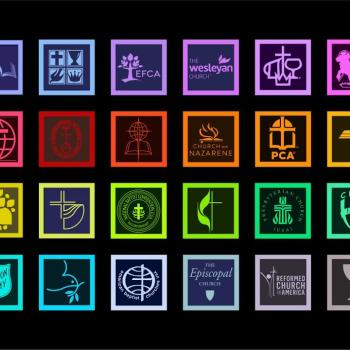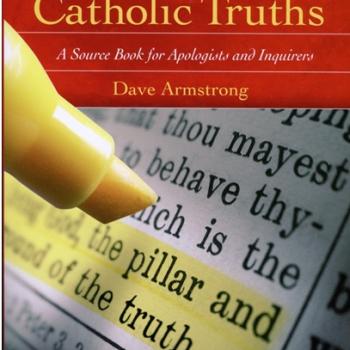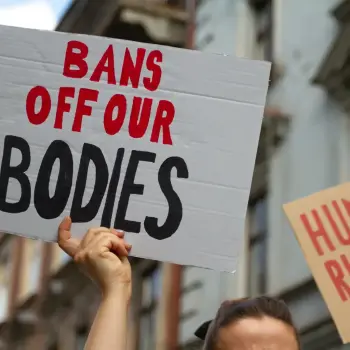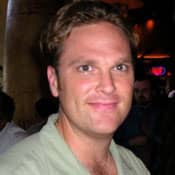By C. Michael Patton
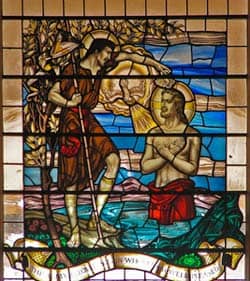 As an evangelical Protestant, I belong to a tradition that strongly affirms the priesthood of all believers. This means, among other things, that I reject the sacerdotal system that characterizes some other forms of the Christian faith.
As an evangelical Protestant, I belong to a tradition that strongly affirms the priesthood of all believers. This means, among other things, that I reject the sacerdotal system that characterizes some other forms of the Christian faith.
Sacerdotalism (from the Latin sacerdos, or "priest") is the belief in an established hierarchy between God and the ordinary mass of humankind. The priesthood, in a sacerdotal system, stands as an essential mediator between God and everyone else. This priesthood is seen as a necessary component in worship, receiving communion (or Eucharist), confessing sin, baptism, and other acts in which the grace of God is administered through the rites and sacraments of the church.
This special "caste" of priests is generally rejected by Protestants, who hold traditionally to the doctrine of the "priesthood of all believers" (1 Pet. 2:5). Most Protestants maintain that the only mediator between God and humankind is Christ (1 Tim. 2:5). Advocates of sacerdotalism reference the priesthood established in the Old Testament, yet opponents emphasize the difference between the New Testament church and the theocratic state described in the Old Testament, believing that the sacerdotal system of the ancient Israelites is completely fulfilled in Christ and therefore no longer necessary (Heb. 10:19-20).
The primary symbol of the opening of the priesthood to all believers is the tearing of the temple veil from top to bottom when the work of Christ upon the cross was finished --symbolizing the fulfillment and overshadowing of the old temple system. You and I, as believers, now need no other representative before God than the God-man, Jesus Christ.
Yet what does this mean practically?
It means that ministers -- from deacons and elders to pastors, priests, and bishops -- are no better, more powerful, or more respected before God than others. Those "called" into full-time service are not an elite force of the few and the proud. They are not the special forces of the kingdom. I am not, because of my ordination, any better or more favored by God.
Don't misunderstand me. I am not saying that ordination is unimportant, any more than I would say that medical training is unimportant for a doctor. I am saying that there is no caste system whatsoever in Christianity, properly understood. Caste systems betray one of the most powerful effects of the cross. They fail to recognize Christ as the second Adam. The veil has been rent in two, and we are all now the temple of God. Destroyed together with the temple veil is any semblance of a necessary mediation, even in the most sacred of events, such as baptism and marriage.
Protestants, however, do not always live the truth of the priesthood of all believers in their lives and communities. Many Protestant churches -- perhaps most -- will not allow laypeople to baptize. Only the pastor is allowed to perform the "rite," as though the pastor possesses some special power or status before God.
I have also attended churches that would not allow communion to be administered outside the church. The walls of the building, in this case, formed a kind of sacerdotal architecture. And some churches, as with baptism, will not allow anyone but the clergy or the elders to administer the Lord's table.
This leaves me with a question. Are these practices not representative of a denial of the priesthood of all believers? Shouldn't laypeople be able to baptize, administer the Lord's Table, and (as far as the church is concerned) perform weddings?
Are we not falling back into a form of sacerdotalism? Perhaps we need to decide. Has the curtain really been rent, or not?
C. Michael Patton is founder and President of Reclaiming the Mind Ministries. Patton earned his Th.M. from Dallas Theological Seminary and served as a pastor at Stonebriar Community Church in Frisco, Texas. His blog, Parchment and Pen, is among the most popular in the Christian blogosphere, and his Credo House of Theology and its Theology Program have trained thousands of pastors and laypeople in the fundamentals of Christian theology and biblical exegesis. See a preview of the Theology Program here.
6/1/2010 4:00:00 AM
